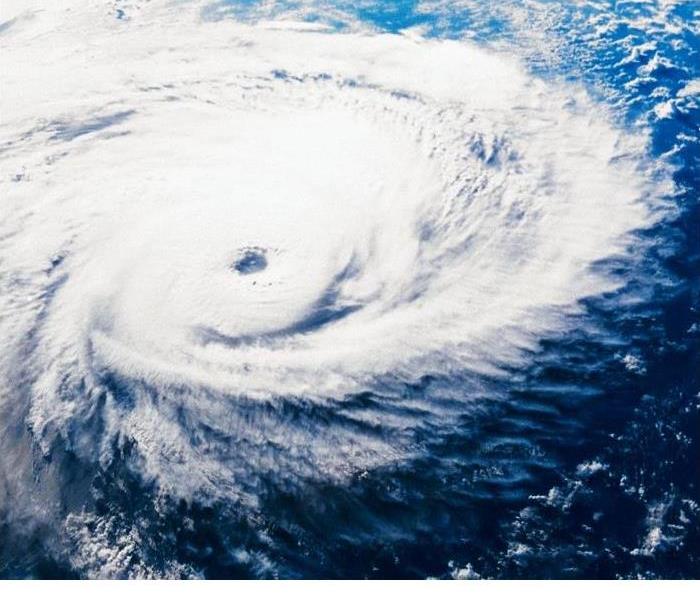Hurricane Preparedness Week – May 7-13, 2017
5/9/2017 (Permalink)
Sunday, May 7th
Determine Your Risk
Find out today what types of wind and water hazards could happen where you live, and then start preparing now for how to handle them. Hurricanes are not just a coastal problem. Their impacts can be felt hundreds of miles inland. It’s easy to forget what a hurricane is capable of doing. The U.S. has not been directly impacted by a major hurricane (Category 3 or higher) in more than a decade. However, hurricanes such as Ike, Sandy and Isaac reminded us that significant impacts can occur without it being a major hurricane. Many people are suffering from hurricane amnesia in the forms of complacency, denial and inexperience. This remarkable hurricane streak is going to end, and we have to be ready for it to happen this season.
Monday, May 8th
Develop an Evacuation Plan
The first thing you need to do is find out if you live in a storm surge hurricane evacuation zone or if you’re in a home that would be unsafe during a hurricane. If you are, figure out where you’d go and how you’d get there if told to evacuate. You do not need to travel hundreds of miles. Identify someone, perhaps a friend or relative who doesn’t live in a zone or unsafe home, and work it out with them to use their home as your evacuation destination. Be sure to account for your pets, as most local shelters do not permit them. Put the plan in writing for you and those you care about.
Tuesday, May 9th
Assemble Disaster Supplies
You’re going to need supplies not just to get through the storm but for the potentially lengthy and unpleasant aftermath. Have enough non-perishable food, water and medicine to last each person in your family a minimum of one week. Electricity and water could be out for at least that long. You’ll need extra cash, a battery-powered radio and flashlights. Many of us have cell phones, and they all run on batteries. You’re going to need a portable, crank or solar powered USB charger.
Wednesday, May 10th
Secure an Insurance Check-up
Call your insurance company or agent and ask for an insurance check-up to make sure you have enough homeowners insurance to repair or even replace your home. Don’t forget coverage for your car or boat. Remember, standard homeowners insurance doesn’t cover flooding. Whether you’re a homeowner or renter, you’ll need a separate policy for it, and it’s available through your company, agent or the National Flood Insurance Program at www.floodsmart.gov. Act now as flood insurance requires a 30-day waiting period.
Thursday, May 11th
Strengthen Your Home
If you plan to ride out the storm in your home, make sure it is in good repair and up to local hurricane building code specifications. Many of these retrofits do not cost much or take as long to do as you may think. Have the proper plywood, steel or aluminum panels to board up the windows and doors. Remember, the garage door is the most vulnerable part of the home, so it must be able to withstand the winds.
Friday, May 12th
Check on Your Neighbor
Many Americans rely on their neighbors after a disaster, but there are also many ways you can help your neighbors before a hurricane approaches. Learn about all the different actions you and your neighbors can take to prepare and recover from the hazards associated with hurricanes. Start the conversation now with these Neighbor Helping Neighbor strategies
Saturday, May 13th
Complete Your Written Hurricane Plan
The time to prepare for a hurricane is before the season begins, when you have the time and are not under pressure. If you wait until a hurricane is on your doorstep, the odds are that you will be under duress and will make the wrong decisions. Take the time now to write down your hurricane plan. Know where you will ride out the storm and get your supplies now. You don’t want to be standing in long lines when a hurricane warning is issued. Those supplies that you need will probably be sold out by the time you reach the front of the line. Being prepared, before a hurricane threatens, makes you resilient to the hurricane impacts of wind and water. It will mean the difference between your being a hurricane victim and a hurricane survivor.






 24/7 Emergency Service
24/7 Emergency Service
